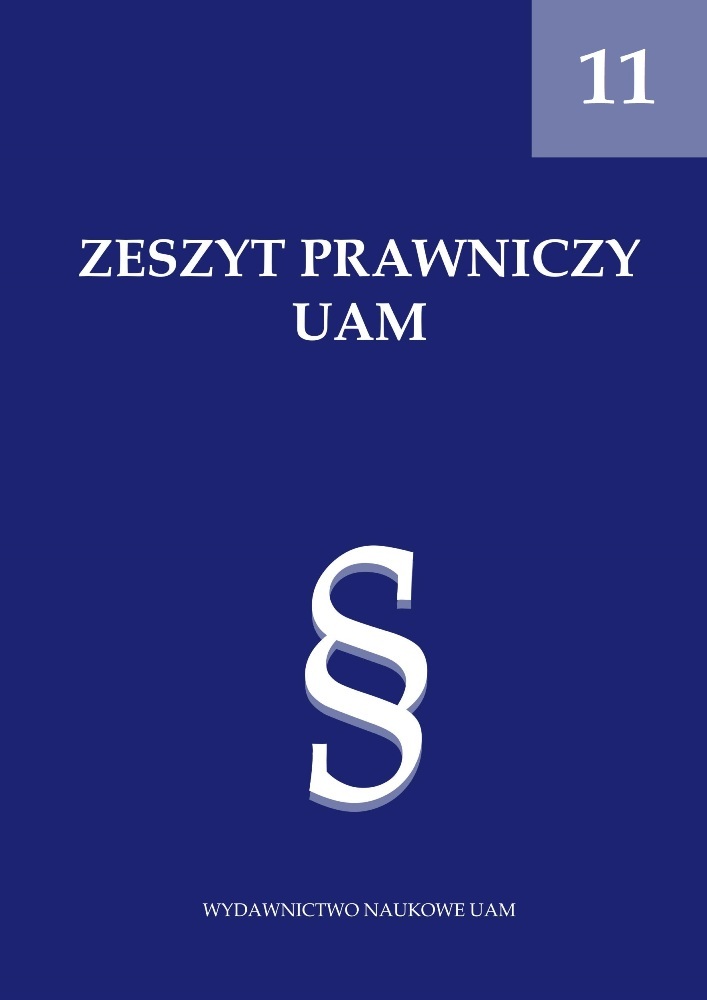Abstract
It’s obvious that these days had been dominated by new technologies. Nowadays the digitization process is intensive and there is no chance that it will slow down. Currently the new technology industry concerns all steps of people’s life. Wide range of activity and diferences between each startups causes a lot of legal problems. Startups demand flexible ways while drawing up a contract and a posibility of taking up shares in exchange for working for the company. In this kind of companies the human’s innovative idea, vision (their work) are the most important thing because it is the key to achive a big success. It’s seems that the regulations of partnerships are not enough for startups by cause of unlimited liability of partners. The startups are often growing very fast so their partners are insterested in limit their liability. Also previously binding regulations on capital companies don’t solve the startup’s problems. Firstly, sales shares of the limited company is legally hindered. However a joint-stock company requires formalism when drawing up a contract and coverage of large share capital. The Polish legislator in order to solve, inter alia, the difficulties described above, decided to introduce a new institution to the Code of Commercial Companies - a simple joint-stock company. This paper presents theoretical and legal discussion related to the nature of the startup, current situation this kind of business and describe the newest and main regulations, which may affect the functioning of startups in Poland.
References
Izdebski, K., Kolankiewicz, K. (2020). Czy dobry Samarytanin jest dobry? - analiza prawna tzw. klauzuli dobrego Samarytanina 17.04.2021. <https://www.ozzl.org.pl/aktualnosci/14015-czy-dobry-samarytanin-jest-dobry-analiza-prawna-tzw-klauzuli-dobrego-samarytanina>.
Kappes, A. (2018). Prosta spółka akcyjna - czy rzeczywiście prosta i czy potrzebna? Uwagi do projektu nowelizacji Kodeksu spółek handlowych, wprowadzającego prostą spółkę akcyjną (projektowane art. 300(1)-300(121) k.s.h.). Przegląd Prawa Handlowego 5: 10-16.
Kappes, A. (2019). Opinia prawna w przedmiocie oceny rządowego projektu ustawy o zmianie ustawy kodeks spółek handlowych i niektórych innych ustaw - nr RM-10-11-19 - nr druku sejmowego (3236). 13.02.2021. <https://www.sejm.gov.pl/Sejm8.nsf/opinieBAS.xsp?nr=3236>
Kappes, A. (2020). Prosta spółka akcyjna, [w:] W.J. Katner (red.), Prawo gospodarcze i handlowe. Warszawa: 356.
Kozieł, G. (2020). Komentarz do art. 3002 § 2, [w.] G. Kozieł, Prosta spółka akcyjna. Komentarz do art. 3001 - 300134 KSH. Warszawa: 15.
Kruczalak-Jankowska, J. (2018). Prosta spółka akcyjna - polską superspółką? Przegląd Prawa Handlowego 9: 27-28.
Opalski, A. (2019). Prosta spółka akcyjna - nowy typ spółki handlowej, cz. 1. Przegląd Prawa Handlowego 11: 5-15.
Pinior, P. (2019). Ekspertyza prawna dotycząca rządowego projektu ustawy o zmianie ustawy - Kodeks spółek handlowych oraz niektórych innych ustaw (druk nr 3236). 13.02.2021. <https://www.sejm.gov.pl/Sejm8.nsf/opinieBAS.xsp?nr=3236>.
Romanowski, M. (2019). Ocena projektu ustawy - o zmianie ustawy – Kodeks spółek handlowych oraz niektórych innych ustaw (Druk nr 3236). 10.02.021. <https://www.sejm.gov.pl/Sejm8.nsf/opinieBAS.xsp?nr=32366>.
Sójka, T. (2018). O potrzebie zmian unormowań niepublicznych spółek kapitałowych - uwagi na kanwie projektu przepisów o prostej spółce akcyjnej. Przegląd Prawa Handlowego 9: 12-18.
Sójka,T. (2019). Prosta spółka akcyjna, [w:] A. Koch, J. Napierała (red.), Prawo spółek handlowych. Warszawa: 430.
Wiórek, P.M. (2018). O braku potrzeby wprowadzenia prostej spółki akcyjnej (PSA) z perspektywy prawnoporównawczej. Przegląd Prawa Handlowego 5: 4-9.
License
Copyright (c) 2021 Szymon Nędzyński

This work is licensed under a Creative Commons Attribution 4.0 International License.
